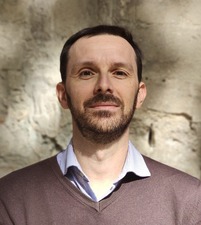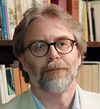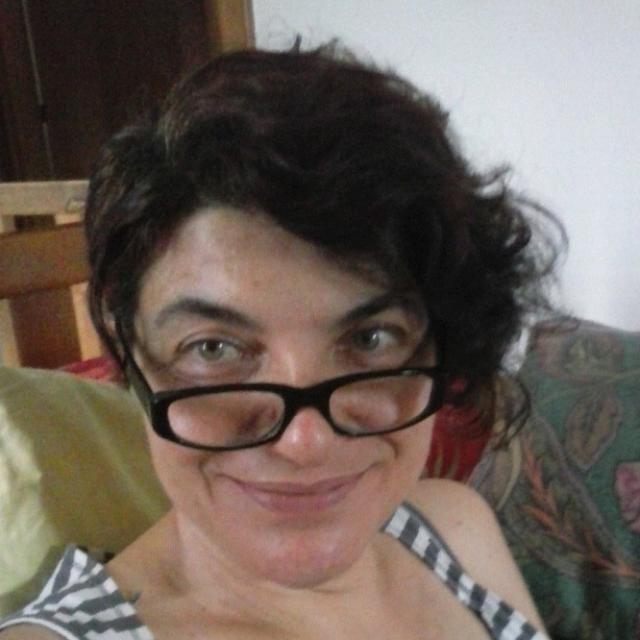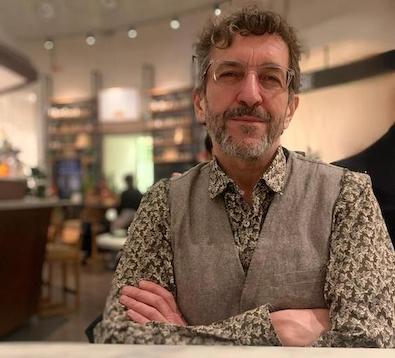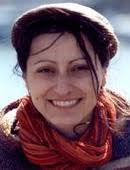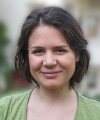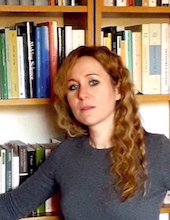Studying at the University of Verona
Here you can find information on the organisational aspects of the Programme, lecture timetables, learning activities and useful contact details for your time at the University, from enrolment to graduation.
Academic calendar
The academic calendar shows the deadlines and scheduled events that are relevant to students, teaching and technical-administrative staff of the University. Public holidays and University closures are also indicated. The academic year normally begins on 1 October each year and ends on 30 September of the following year.
Course calendar
The Academic Calendar sets out the degree programme lecture and exam timetables, as well as the relevant university closure dates..
| Period | From | To |
|---|---|---|
| 1 A | Sep 26, 2022 | Nov 5, 2022 |
| 1 B | Nov 14, 2022 | Dec 22, 2022 |
| 2 A | Feb 13, 2023 | Apr 6, 2023 |
| 2 B | Apr 12, 2023 | May 27, 2023 |
| Session | From | To |
|---|---|---|
| Sessione invernale | Jan 9, 2023 | Feb 11, 2023 |
| Sessione estiva | Jun 5, 2023 | Jul 29, 2023 |
| Sessione autunnale | Aug 28, 2023 | Sep 23, 2023 |
| Session | From | To |
|---|---|---|
| Sessione straordinaria (a.a. 2021/22) | Mar 31, 2023 | Apr 6, 2023 |
| Sessione estiva | Jul 10, 2023 | Jul 15, 2023 |
| Sessione autunnale | Nov 6, 2023 | Nov 11, 2023 |
| Sessione straordinaria | Apr 2, 2024 | Apr 8, 2024 |
| Period | From | To |
|---|---|---|
| Chiusura edifici | Oct 31, 2022 | Oct 31, 2022 |
| Festa di Ognissanti | Nov 1, 2022 | Nov 1, 2022 |
| Festa dell'Immacolata | Dec 8, 2022 | Dec 8, 2022 |
| Chiusura edifici | Dec 9, 2022 | Dec 10, 2022 |
| Vacanze di Natale | Dec 23, 2022 | Jan 7, 2023 |
| Vacanze di Pasqua | Apr 7, 2023 | Apr 10, 2023 |
| Festa della Liberazione | Apr 25, 2023 | Apr 25, 2023 |
| Festa del lavoro | May 1, 2023 | May 1, 2023 |
| Festa del Santo Patrono | May 21, 2023 | May 21, 2023 |
| Festa della Repubblica | Jun 2, 2023 | Jun 2, 2023 |
| Chiusura estiva | Aug 13, 2023 | Aug 19, 2023 |
Exam calendar
Exam dates and rounds are managed by the relevant Culture and Civilisation Teaching and Student Services Unit.
To view all the exam sessions available, please use the Exam dashboard on ESSE3.
If you forgot your login details or have problems logging in, please contact the relevant IT HelpDesk, or check the login details recovery web page.
Should you have any doubts or questions, please check the Enrollment FAQs
Academic staff
 federica.barboni@univr.it
federica.barboni@univr.it
 evita.calabrese@univr.it
evita.calabrese@univr.it
 dario.donetti@univr.it
dario.donetti@univr.it
 michele.marchesi@univr.it
michele.marchesi@univr.it
Morbiato Giacomo
 giacomo.morbiato@univr.it
giacomo.morbiato@univr.it
 giulia.pedrucci@univr.it
giulia.pedrucci@univr.it
 sofia.piacentin@univr.it
sofia.piacentin@univr.it
 dino.piovan@univr.it
dino.piovan@univr.it
 fedraalessandra.pizzato@univr.it
fedraalessandra.pizzato@univr.it
 irene.reginato@univr.it
irene.reginato@univr.it
 alberto.scandola@univr.it
alberto.scandola@univr.it
 cecilia.sideri@univr.it
cecilia.sideri@univr.it
Study Plan
The Study Plan includes all modules, teaching and learning activities that each student will need to undertake during their time at the University.
Please select your Study Plan based on your enrollment year.
1° Year
| Modules | Credits | TAF | SSD |
|---|
1 module to be chosen amont the following2° Year activated in the A.Y. 2023/2024
| Modules | Credits | TAF | SSD |
|---|
Latin literature (i)
2 modules to be chosen among the following1 module to be chosen among the following2 modules to be chosen among the following3° Year It will be activated in the A.Y. 2024/2025
| Modules | Credits | TAF | SSD |
|---|
2 modules to be chosen among the following1 module to be chosen among the following1 module to be chosen among the following| Modules | Credits | TAF | SSD |
|---|
1 module to be chosen amont the following| Modules | Credits | TAF | SSD |
|---|
Latin literature (i)
2 modules to be chosen among the following1 module to be chosen among the following2 modules to be chosen among the following| Modules | Credits | TAF | SSD |
|---|
2 modules to be chosen among the following1 module to be chosen among the following1 module to be chosen among the following| Modules | Credits | TAF | SSD |
|---|
Legend | Type of training activity (TTA)
TAF (Type of Educational Activity) All courses and activities are classified into different types of educational activities, indicated by a letter.
Greek Literature (i) (2023/2024)
Teaching code
4S01893
Teacher
Coordinator
Credits
6
Also offered in courses:
- Greek Literature (i) of the course Bachelor’s degree in Cultural Heritage
- Greek literature - MODULO 1 of the course Bachelor's degree in Philosophy
Language
Italian
Scientific Disciplinary Sector (SSD)
L-FIL-LET/02 - GREEK LANGUAGE AND LITERATURE
Period
CuCi 1 A, CuCi 1 B
Courses Single
Authorized
Learning objectives
The course aims to provide Students with an adequate understanding of the literary institutions of ancient Greece, analyzed in terms both of their history and their structures and placed within the major framework of European cultural tradition. Students will be guided in reading ancient Greek texts – or selections thereof – in the original language. The course will focus on, but will not be limited to, texts from the Archaic and Classical periods. At the end of the course Students will - know the main textual typologies of Greek Literature; - have an adequate knowledge of the history, development, and authors of Greek Literature up to the classical period; - be able to place, in terms both of chronology and literary history, metre, and language, the texts under scrutiny; - be able to introduce and explain in their own words and with appropriate language the texts that the course focuses on; - be able to translate and comment upon both the texts analyzed in class and others forming part of the programme.
Prerequisites and basic notions
Good knowledge of ancient Greek is required.
Program
THE LAST HERO: READING SOPHOCLES' 'AJAX'.
(1) The protagonist is the epic hero of the Trojan war, second in valor only to Achilles whose weapons he considers himself unjustly deprived because of the betrayal of the Achaeans siding with Odysseus. We see him mad, desperate, then suicidal. To the Achaeans, he is guilty of treason against them and of hybris against the gods. Isolated and irreducible to the new values, Ajax chooses suicide as an extreme rejection of all compromise. The age of epic heroes is over: what will replace it?
We will use the critical edition by P. Finglass in the series «Cambridge Classical Texts and Commentaries» (2011).
(2) Students will independently prepare (a) translation and grammatical commentary of Iliad 23 on the Teubner text by Martin L. West (München-Leipzig 2000). For this purpose they can may make use of any commercially available annotated edition, e.g. Franco Ferrari's Oscar Classici (https://tinyurl.com/yp6pappu); (b) Greek literary history from the Archaic age to the 4th s. B.C.
NB: (1) The text of critical editions and other bibliography will be provided directly by the lecturer via the Moodle platform; (2) attendance at the Greek metrics workshop (16 hours) is recommended. It will be activated in parallel with the beginning of classes.
Bibliography
Didactic methods
(1) teaching will be delivered in-presence; (2) non-attending students must agree on an alternative program.
Learning assessment procedures
The examination is oral for attending and non-attending students and includes (a) translation of one or more excerpts from the texts covered in class and from Iliad 23; (b) commentary on the same passages from a literary-historical, linguistic, metrical point of view; (c) one question on history of Gree literature with regard to the Archaic, Classical, and post-Classical periods.
The duration of the oral examination is approximately one hour.
Evaluation criteria
The examination will aim to assess:
(1) the ability to translate the texts on the syllabus;
(2) awareness of the translation choices adopted and the linguistic-stylistic specificities of the texts;
(3) the ability to reflect critically on these texts within the framework of the literary genres of reference;
(4) knowledge of the history of Greek literature of the archaic, classical, and post-classical.
Criteria for the composition of the final grade
---
Exam language
italiano (eventualmente inglese per gli Erasmus).
Type D and Type F activities
COMPETENZE TRASVERSALI
| years | Modules | TAF | Teacher |
|---|---|---|---|
| 1° 2° 3° | FAI Activities | F |
Edoardo Bianchi
(Coordinator)
|
| 1° 2° 3° | Series of conferences Don Nicola Mazza University College | F |
Alessandra Zangrandi
(Coordinator)
|
| 1° 2° 3° | Business English for everybody | F |
Serena Dal Maso
(Coordinator)
|
| 1° 2° 3° | Russian for everybody | F |
Serena Dal Maso
(Coordinator)
|
| 1° 2° 3° | Intercomprehension laboratory between the Romance languages | F |
Alessandra Zangrandi
(Coordinator)
|
| 1° 2° 3° | Laboratory to introduce the study of Ancient Greek | F |
Dino Piovan
(Coordinator)
|
| 1° 2° 3° | Books and writings of the Greek world | F |
Paolo Scattolin
(Coordinator)
|
| 1° 2° 3° | Music in History | F |
Vincenzo Borghetti
(Coordinator)
|
| 1° 2° 3° | Discovery and re-discovery of a city: Verona in the heart of the Roman Empire | F |
Riccardo Bertolazzi
(Coordinator)
|
Career prospects
Module/Programme news
News for students
There you will find information, resources and services useful during your time at the University (Student’s exam record, your study plan on ESSE3, Distance Learning courses, university email account, office forms, administrative procedures, etc.). You can log into MyUnivr with your GIA login details: only in this way will you be able to receive notification of all the notices from your teachers and your secretariat via email and soon also via the Univr app.
Graduation
List of theses and work experience proposals
| theses proposals | Research area |
|---|---|
| tesi di Glottologia, Storia comparata, Linguistica storica | ENGLISH LANGUAGE - Grammar and Syntax – Grammatik und Syntax |
| tesi di Glottologia, Storia comparata, Linguistica storica | GERMANIC LANGUAGE - Dialectology - Dialektologie |
| tesi di Glottologia, Storia comparata, Linguistica storica | HUMANITIES & SOCIAL STUDIES - HUMANITIES & SOCIAL STUDIES |
| tesi di Glottologia, Storia comparata, Linguistica storica | Indo-European languages & literatures - Indo-European languages & literatures |
| tesi di Glottologia, Storia comparata, Linguistica storica | LINGUISTICS - LINGUISTICS |
| Stage | Research area |
|---|---|
| Lavorare in archivio | Various topics |
| L'iter del libro in biblioteca | Various topics |
Gestione carriere
Linguistic training CLA
Student mentoring
Requisiti classi di abilitazione insegnamento
Requisiti necessari per accedere alle classi di abilitazione per l'insegnamento.
vedi allegato pdf
Inoltre, per informazioni sui 24 CFU nelle discipline antropo-psico-pedagogiche e nelle metodologie e tecnologie didattiche, si veda -> LINK
Documents
| Title | Info File |
|---|---|
|
|
pdf, it, 307 KB, 30/11/21 |

 +39 045802 8351
+39 045802 8351
